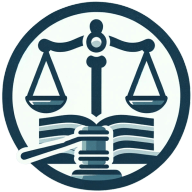How Do You Approach Ethical Dilemmas as a Legal Advisor?
Navigating the intricate web of ethical dilemmas presents a formidable challenge for legal advisors. This article distills the wisdom of seasoned professionals, illuminating the paths to uphold integrity while balancing legal acumen. Explore expert strategies to fortify decision-making with unwavering ethics and empathetic understanding.
- Uphold Transparency and Uncompromising Ethics
- Consult Ethics Codes and Seek Second Opinions
- Utilize Bar Association Resources for Guidance
Uphold Transparency and Uncompromising Ethics
Having practiced personal injury law throughout the DMV area for decades, I can attest that ethical quandaries are inevitable rather than hypothetical. Our field operates in a landscape of constant moral ambiguity.
My approach is actually quite straightforward and boils down to two principles:
1. Transparent Communication - I maintain complete honesty with clients because our role is to solve problems, not hide from them. Even when the truth is uncomfortable, I deliver it straight--because trust isn't negotiable.
2. Uncompromising Ethics - Professional integrity outweighs any single case victory. If a matter conflicts with ethical standards, I'll walk away every time. Some battles aren't worth your license.
Ethical dilemmas aren't about whether we'll face them--but what standards we'll uphold when we do. Several years ago, I took on a rear-end collision case involving a single mother who suffered spinal injuries from a commercial truck. The medical costs were devastating, robbing her of both her ability to work and care for her children. The case was solid--except for one critical issue. We had a witness, her friend, ready to testify that "she became completely immobile after the injury, confined to bed around the clock".
What sounded like helpful testimony became a serious problem. Our hospital records and physician statements clearly showed that while injured, she retained limited mobility--even working from home for a period. The witness's account, though 'well-intentioned,' had veered into factual misrepresentation.
Guided by those two principles I mentioned earlier, we sat down with both the client and the witness. Here's the hard truth: Even minor exaggeration in testimony doesn't just jeopardize a single case--it risks the attorney's license, the firm's reputation, and the entire claim's legitimacy.
In the end, we chose not to use this witness. While it might have seemed 'unwise' at the time, we preserved the integrity and credibility of our evidence--and the case was won regardless. The insurance company, recognizing our honesty and consistency, opted for a settlement.
This is the heart of ethical practice: moral dilemmas aren't resolved through 'cleverness,' but through honesty and principled commitment. Sure, cutting corners might have secured a faster win, but that's never how I've practiced law. Our role isn't just to win cases--it's to be someone clients can trust without reservation.

Consult Ethics Codes and Seek Second Opinions
When facing ethical dilemmas, I rely on a principled approach grounded in legal ethics codes and transparent communication. I begin by identifying the conflicting duties and assessing the legal framework governing the situation. I consult relevant bar association guidelines and, when needed, seek a second opinion from trusted colleagues to avoid unconscious bias. My resolution process prioritizes client interests while maintaining integrity and legal boundaries. One example involved a conflict of interest between two potential clients; by transparently disclosing the issue and declining representation, I preserved ethical standards and long-term trust.

Utilize Bar Association Resources for Guidance
In our legal practice, we occasionally find ourselves in an ethical dilemma. The first thing we do is look to the rules of professional conduct for the jurisdiction in question. For us, that is Kentucky and Indiana. If we cannot find a rule directly on point, we will reach out to the Kentucky Bar Association Ethics Hotline. Most jurisdictions have one. Indiana has previous opinions published online. Members may obtain personal advice about their own contemplated future conduct through the hotline by means of an informal ethics opinion. The informal opinion, if based upon an accurate statement of the facts and followed, can serve as a defense to a later complaint of misconduct which arises from the same facts. In the end, the rule of thumb is to choose a course of action that does as little harm to the client as possible (preferably no harm) while staying within the bounds of the law.


